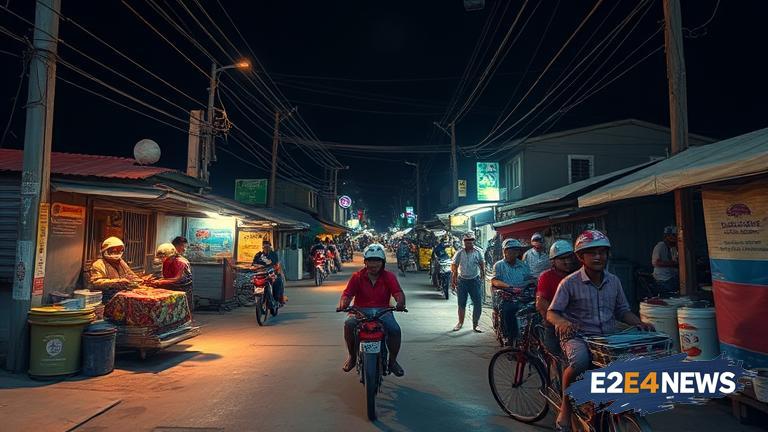The recent trend of Cambodian job seekers illegally entering Thailand has raised concerns about the management of cross-border labor flows. Many Cambodians are seeking better job opportunities in Thailand, driven by the prospect of higher wages and improved working conditions. However, the lack of formal channels for labor migration has led to an increase in illegal border crossings. Meanwhile, a significant number of Thais are traveling to Poipet, a Cambodian border town, in search of work, often in the informal sector. This phenomenon has been attributed to the allure of lucrative job opportunities in casinos and other entertainment venues. The situation has sparked concerns about the potential for labor exploitation, human trafficking, and other social issues. Authorities on both sides of the border are grappling with the challenges of regulating cross-border labor flows and ensuring the safety and well-being of migrant workers. The Thai government has implemented measures to crackdown on illegal labor migration, including increased border patrols and stricter penalties for employers who hire undocumented workers. However, these efforts have been met with limited success, as many migrant workers continue to find ways to evade detection. The Cambodian government has also taken steps to address the issue, including the establishment of a new labor migration policy aimed at promoting safe and orderly migration. Despite these efforts, the root causes of the problem, including poverty and lack of job opportunities in Cambodia, remain unaddressed. The situation is further complicated by the presence of corrupt officials and human traffickers who prey on vulnerable migrant workers. The international community has called for greater cooperation between Thailand and Cambodia to address the issue of cross-border labor migration. The United Nations has urged both countries to strengthen their efforts to protect the rights of migrant workers and prevent labor exploitation. Non-governmental organizations have also been working to provide support and assistance to migrant workers, including those who have been trafficked or exploited. The issue of cross-border labor migration is not unique to Thailand and Cambodia, as many countries in the region are struggling to manage the flow of migrant workers. The Association of Southeast Asian Nations (ASEAN) has recognized the need for greater cooperation and coordination on labor migration issues, and has established a number of initiatives aimed at promoting safe and orderly migration. However, more needs to be done to address the root causes of the problem and ensure that migrant workers are protected from exploitation and abuse. The Thai and Cambodian governments must work together to establish formal channels for labor migration, and to ensure that migrant workers have access to safe and decent working conditions. This will require a concerted effort to address the social and economic factors that drive labor migration, including poverty and lack of job opportunities. Ultimately, the goal should be to create a system that allows migrant workers to move safely and legally between countries, while also protecting their rights and preventing labor exploitation. The situation is complex and multifaceted, and will require a sustained and coordinated effort to resolve. The international community must continue to pressure both governments to take action to address the issue, and to provide support and assistance to migrant workers who have been affected. By working together, it is possible to create a more just and equitable system for migrant workers, and to ensure that they are able to access safe and decent work opportunities.
